QuestionAs far as molting goes. How much of her feathers will she lose and replace? It is not all of them correct? Also, currently she weighs around 99 - 101 grams, it seems to fluctuate, I weigh her every Sunday morning. Is that about right for now, the vet says it is just fine and that as she ages she will get a little heavier, but not much more. She'll top out at around 120 grams, any heavier would be unhealthy.
I feed her a mix of Kaytee Conure Pellets (3/4) and Nutriphase Teil Seed Mix (1/4). She also gets Avicakes, 2 kinds of Lafaebers seeded treats and peanuts in the shell, but only about a piece of each a day tops. Am I over feeding?
-------------------------------------------
The text above is a follow-up to ...
-----Question-----
I have a Sun Conure (6 months old) she has broken all of her tail feathers off except one. She has broken most of them by jumping down from her cage-top perch, or if she falls(clumsy sometimes). So my questions are: Other than being unsightly, is this a concern(no bloody feathers)?
How long will it take for her to grow them back? The rest of her feathers are shiny and beautiful, wings , head, chest and back. Thanks, Frank
-----Answer-----
Hi, Frank. Thanks for posting!
This is typical of young parrots. They like to play and in doing so, they tend to break off their tail feathers. However, the breaking off of tail feathers can also be the result of a cage that is too small. Is this bird's cage large enough? A large enough cage is one where the bird can vigorously flap it's wings without any part of it's wings, end of it's tail, head, etc., touching anything in the cage (food dishes, perches, toys, etc.). If your bird is allowed outside it's cage for most of the time every day, it's cage can be a bit smaller. However, if your bird spends most of it's time in it's cage, the cage needs to be sufficiently spacious.
The feathers will grow back when she molts. If she's 6-months old, she's due for a molt any time (if she hasn't molted her first time yet). She'll molt again at 12 months, then once or twice annually after her first year.
Come back with any additional questions.
Chrys
AnswerHi again, Frank.
When a bird molts, it molts EVERY feather on it's body, even the tiny ones. However, this takes place gradually over about 4-6 weeks, so you should only see a molted feather here and there.
You aren't overfeeding, but you seem to be offering too much seed treats. Seed is high in fat and low in nutrition. Your conure could get fat with eating too much seed. I'd recommend only 1 type of treat per day, not one of each kind. Conures need a variety of foods, including fresh veggies, fruit, multi/whole grain breads/dry sugarless cereals, cooked beans/lentils, corn bread, cooked brown rice, and anything else we eat that is healthy and nutritious. Avoid salt, sugar, dairy products, chocolate, avocados, citrus seeds, caffeine, soda, fast foods, foods cooked in oil, etc., etc. Birds won't eat things they don't recognize as food, so keep offering foods every day until your bird tries something (the bird doesn't know if this strange stuff is a toy, something that will hurt it, etc.). Also, if seed is available at the same time as other foods, most birds will choose the seed. Therefore, it's best to remove any seed/seed product when offering other foods you want your bird to eat. Then after a few hours, remove the soft food before it spoils, and put the seed/pellet mix back in the cage.
I don't weigh my birds after they reach a certain age (babies, yes, adult birds, no). I can tell just by looking at them if they are overweight or underweight or losing weight. Weight is relative anyhow, depending on the overall size of a bird, it's general health, etc. When overweight, a bird will look as though it has clevage (the meat on either side of it's breast [keel] bone will increase and look like clevage). When underweight, you will be able to see the breast bone (the amount of meat on either side will be small). It's good to weigh birds if you can since loss of weight can be an indicator of illness, but often times, it's just too difficult to get those birds on a birdie scale!
It's great you are consulting with an avian veterinarian. Most people don't even begin to search for a bird vet until something is wrong with their parrot(s), and often times that's too late.
Come back with any additional questions.
Chrys

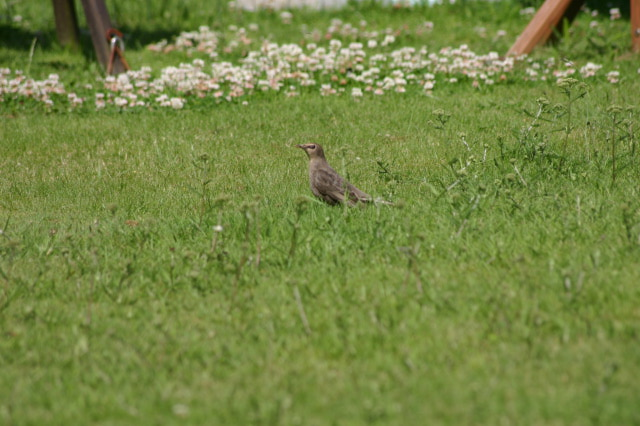 Identification of a bird
Question
Bird name
Please can you advise what th
Identification of a bird
Question
Bird name
Please can you advise what th
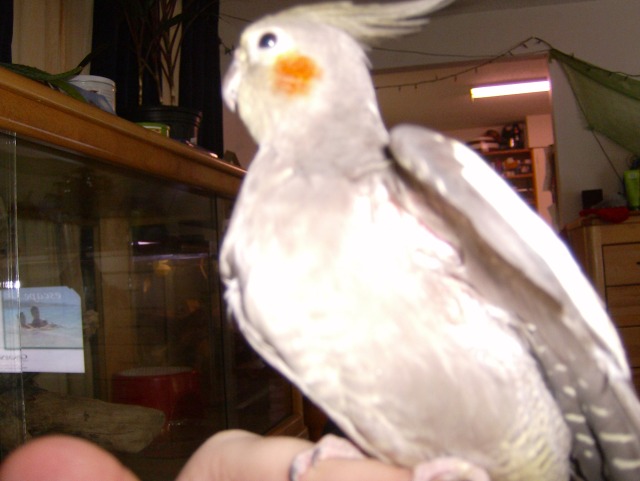 my cockitale mocha
QuestionQUESTION: I have a cokitale that will be 3 on A
my cockitale mocha
QuestionQUESTION: I have a cokitale that will be 3 on A
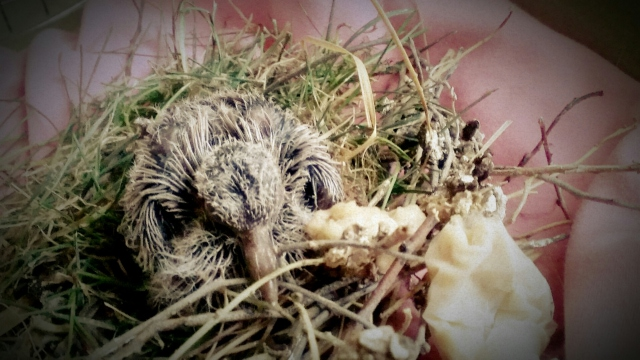 Baby Dove Care
Question
Baby Bird 1 Baby Bird 2
Hello, to
Baby Dove Care
Question
Baby Bird 1 Baby Bird 2
Hello, to
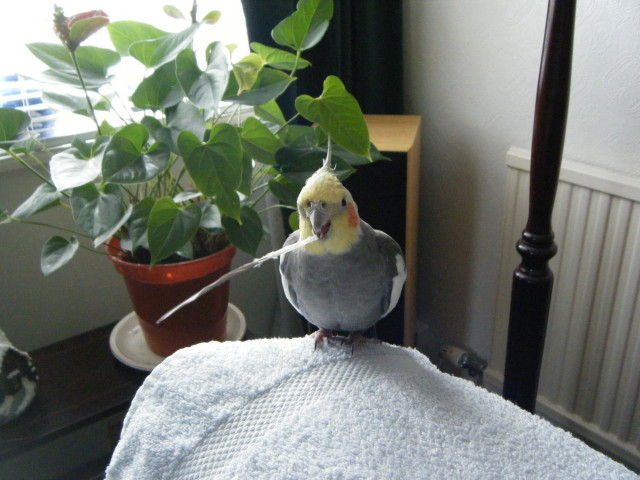 boris the cockatiel
Question
boris
Hello , I have a male cockatiel called b
boris the cockatiel
Question
boris
Hello , I have a male cockatiel called b
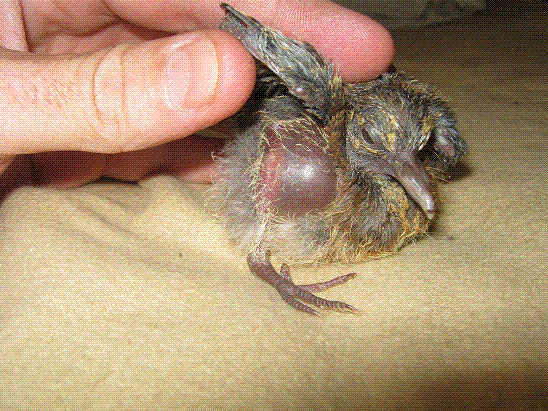 Baby Pigeon
Question
Cosmo
Hi Roger
We picked up a baby pigeon, ap
Baby Pigeon
Question
Cosmo
Hi Roger
We picked up a baby pigeon, ap